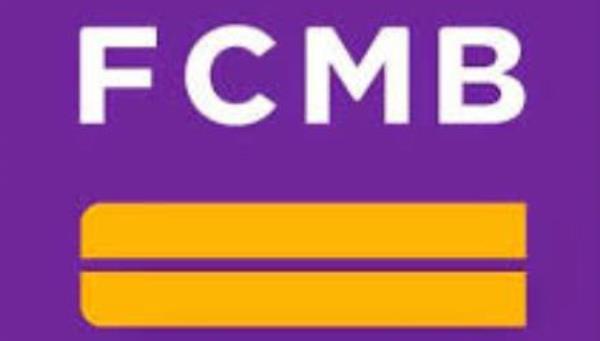E-Financial
PalmPay’s Efforts at Curtailing Cyber Fraud: Two Sides of the Same Coin

The financial inclusion rate in Nigeria has improved. Since the country adopted an inclusion strategy in 2012, adult Nigerians with a bank account have increased, and now account for more than two-thirds of the financially included.

According to the 2023 Report on Access to Financial Services in Nigeria, financial inclusion continues to expand and has so far been fueled by marginal growth among the country’s banked population and major gains in non-bank formal adoption.
Although approximately 40 million adult Nigerians remain formally excluded, formal financial inclusion was said to have grown from 56% in 2020 to 64% in 2023.
In the last four years, fintech companies in Nigeria have played a vital role in closing this gap, bringing financial services to the country’s unbanked and driving economic growth. Their successes, however, have not come without challenges.
Following the penetration of digital payment platforms in Africa, a fraud epidemic has plagued the fintech ecosystem in Nigeria, with Mobile, Web and POS being the most exploited channels by fraudsters in the country in 2023.
According to the 2023 NIBSS Annual Fraud Landscape report, incidents of “Fraud loss via Internet Banking increased by 325% between 2022 and 2023.”
The rise of digital payment platforms in Nigeria has increased the potential for cyber fraud, with fintech companies now forced to balance between making payment apps user-friendly and prioritising users’ safety to stem increased cyber fraud.
Fintech Side of the Coin
To address the fraud epidemic, the Fintech Association of Nigeria (FintechNGR) plans to unveil a fraud reporting framework sometime this year, while fintech platforms such as PalmPay continue to take the initiative to reevaluate their in-app safety features to protect their users from the activities of fraudsters.
Since launching in Nigeria in 2019 under a Mobile Money Operator (MMO) licence by CBN, PalmPay has grown to over 30 million users as part of its payment ecosystem.
In building a user-friendly app, PalmPay has also sought to foster a secure financial ecosystem by integrating safety features into its app so that the millions of users who transact with the app do so in a safe and trusted environment.
In general, PalmPay employs a closed-loop risk management system that involves continuous monitoring, analysis, and response to fraud threats and allows it to detect and prevent security risks in real-time and reduce the potential impact of fraud.
In particular, to reduce incidents of fraud, protect their users from fraudsters, and provide a safe banking environment, PalmPay binds their users’ phones to the app and has an auto-logout and biometrics feature to confirm users’ identity.
PalmPay Safety Features
Chika Nwosu, Managing Director, PalmPay, said the reason why the fintech platform has witnessed astonishing growth in four years was because “We prioritise the safety and security of our users.” He said they’ve been able to achieve this by “marrying security and safety with the customer experience to create a balance.”
Because it understands that curtailing fraud is a two-way street, PalmPay runs a Wallet Safety Workshop to teach users of its app and POS machines various security topics covering payment security and common security issues in daily life, such as password management, fraud detection, phishing and risk identification.
The safety workshop underscores PalmPay’s understanding of user security as an important part of curtailing fraud and encourages its users to ensure that they always secure their wallets using the several built-in safety features in its app.
A recent example was a series of campaigns encouraging its users to link their wallets with their BVN or NIN, following the directive by the Central Bank of Nigeria (CBN) for users of fintech platforms to link their wallets with their BVN or NIN.
To encourage the users to meet the CBN deadline of January 31, 2024, PalmPay introduced an incentive payment system where up to N500 was paid to users who got ahead of the deadline and validated their wallet information.
PalmPay users have several options for protecting themselves against fraudsters such as the two-factor verification process that makes it difficult for fraudsters to gain access to users’ apps without spooking them. In the first half of 2023, millions of users linked their secure email addresses to their PalmPay app. With this feature, PalmPay users effortlessly receive OTPs for their in-app login.
The PalmPay app has a device management feature that allows users to manage trusted devices and remove untrusted devices. When logging in on an untrusted device, users complete a comprehensive security verification process that involves inputting an OTP and their PIN to ensure security.
Role of PalmPay Users
While fintech companies play a role in protecting users from cyber fraud, the rising fraud incidents in Nigeria can sometimes be due to poor digital and financial literacy, but most especially the failure of many victims to report an attack.
In a report last year, Temitayo Oduwole, Head of IT and Payments, PalmPay, observed that customers do not take prompt action in incidents of fraud and that “Only 33 per cent report the same day or take the necessary right action on the same day.”
Effective investigation into incidents of fraud begins when the user reports to their bank that fraud has occurred. However, fraud, if not reported within the hour the crime occurred, allows criminals to move the stolen funds to ‘safe’ places.
Precaution remains the best remedy to protect oneself from cyber fraud. Anti-fraud expert Tosin Adenekan warned fintech users against trusting strangers with their personal information when performing digital transactions.
According to Mrs Adenekan, “Users of fintech platforms owe it to themselves to follow standard safety precautions to avoid being defrauded by cyber criminals.
“Do not allow strangers such as POS operators to handle personal ATM cards. This is because cybercriminals often posing as helpful POS operators can exploit this to observe PIN entries and distract card owners, ultimately swapping ATM cards.”
She urged fintech users to “take steps to reduce incidents of fraud on their wallets by creating strong passwords, enabling the two-factor authentication features on their fintech app, monitoring their wallets for unauthorised transactions, and protecting their personal login information when in public from prying eyes.”
Other steps to take include “regularly updating their apps, setting limits for their wallets, staying alert for phishing attempts, getting the proper financial education, using secure internet connection, being aware of pop-ups and fraudulent emails, and ensuring that operating systems and internet connections are up to date.”
To prevent falling victim to cyber fraud, Mrs Adenekan urged fintech users to adhere to these safety guidelines and “don’t trust everything on the internet.”
E-Financial
CITN Tasks New Tax Professionals to Shape Fiscal Policies for Efficient Tax System

Mr. Samuel Agbeluyi, the President of the Chartered Institute of Taxation of Nigeria, has charged incoming tax professionals to see their roles as critical to shaping Nigeria’s fiscal policies and building a more efficient tax system.

Agbeluyi gave the charge on Tuesday at the opening of the April 2025 Pre-Induction Orientation Programme held in Abuja.
While addressing participants, the CITN President said the orientation marked not just a personal achievement for inductees but the beginning of a greater national responsibility.
According to him, “Ultimately, it is expected that at the end of this programme and the induction thereafter, the number of tax professionals in the roll call of the CITN and indeed Nigeria would grow.
“Most importantly, more professionals would be added to the struggle of building an efficient and effective tax system in Nigeria, whilst influencing government fiscal policies and adding immense value to various stakeholders.”
Agbeluyi stated that the institute’s charter empowers it to determine the standard of knowledge and skills required to become a professional in the field, adding that the training was a deliberate step towards producing competent tax administrators capable of delivering value in the Nigerian economy.
He also noted that facilitators had been carefully selected from among experienced tax professionals and administrators to guide inductees using practical scenarios.
In her remarks, the Deputy Director of the CITN Tax Academy, Mrs Yetunde Suleiman, said the training was designed to expose participants to key developments in national and international tax administration, as well as emerging issues in the digital economy.
She noted that taxation remained central to Nigeria’s economic development and urged the inductees to take their training seriously in light of growing challenges in the country’s tax system, such as evasion, ambiguity of laws and high compliance costs.
Suleiman said, “There is a continuous need to produce, train and unleash qualified tax professionals to tackle these hydra-headed tax challenges.”
She urged participants to approach the sessions with enthusiasm, noting that the knowledge acquired would prepare them to become ambassadors of the institute and sound professionals equipped to drive reform in the tax space.
E-Financial
FCMB Capital Markets Leads ₦11.85bn GLNG Bond for LNG Plant Expansion

FCMB Capital Markets Ltd. successfully led the issuance of GLNG Funding SPV Plc’s ₦11.85 billion 10-Year Series 2 Senior Guaranteed Fixed Rate Infrastructure Bond, which closed in February. This milestone underscores investor confidence in Nigeria’s clean energy transition.

The bond, issued by GLNG Funding SPV Plc and sponsored by Green Liquified Natural Gas (GLNG) as part of its capital-raising plans, is a key step in financing the construction of a mini-LNG plant with a liquefaction capacity of 200,000 standard cubic meters of gas per day.
The facility will help bridge Nigeria’s power supply gap and offer industries a cleaner, cost-effective alternative to diesel.
The issuance was backed by InfraCredit, an AAA-rated infrastructure credit guarantee firm, and is expected to generate over 500 direct and 2,000 indirect jobs, supporting Nigeria’s sustainable economic growth.
“FCMB Capital Markets remains committed to financing projects that drive clean energy adoption and long-term economic impact,” said Ikechukwu Omeruah, Managing Director, FCMB Capital Markets Limited.
“We appreciate the trust placed in us by GLNG and the invaluable role played by InfraCredit and investors in enabling the successful conclusion of this transaction.”
As gas adoption accelerates in Nigeria, a 2022 Clarke Energy report estimates that manufacturers could save up to 30% by switching to gas from the grid and as much as 80% compared to diesel.
FCMB Capital Markets, a part of FCMB Group, has been instrumental in raising over ₦3 trillion in debt and equity capital for leading corporate organizations in Nigeria over the past five years, reinforcing its position as a key player in the country’s capital markets.
E-Financial
How Nigerian Banks Earned N14.26 Trillion in Interest Income in 2024

Nine leading Nigerian banks collectively generated N14.26 trillion in interest income in 2024, reflecting a 119.55% increase from N6.49 trillion in 2023.

This surge is attributed to the Central Bank of Nigeria’s Monetary Policy Committee raising benchmark interest rates to combat inflation, which reached 34.80% by the end of the year.
Among the banks, Zenith Bank recorded the highest actual income increase, while First Holdco led in percentage growth. Access Holdings, UBA, GTCO, Stanbic IBTC, FCMB Group, Fidelity Bank, and Wema Bank also reported significant gains.
However, a portion of this income was derived from non-performing loans, raising concerns about the sustainability of these earnings.
In contrast, the manufacturing sector faced operational costs of N2.5 trillion, with high interest and energy expenses straining growth. Industry leaders have called for a halt to further rate hikes, warning of potential risks to the real sector’s recovery.
This financial dynamic underscores the contrasting fortunes of Nigeria’s banking and manufacturing sectors. What are your thoughts on these developments?

 Telecom2 days ago
Telecom2 days agoDigital Transformation Remains Africa’s Gateway to Economic Advancement – Adumike

 Telecom2 days ago
Telecom2 days agoPAFON 2.0: Experts Discuss Pathways to Boost Financial Inclusion in Nigeria

 General News2 days ago
General News2 days agoEFCC Clarifies SCUML Certificate Misuse amid CBEX Ponzi Scheme Scandal

 Telecom1 day ago
Telecom1 day agoMTN Nigeria Faces Class Action Lawsuit over Alleged Data Mismanagement

 E-Financial2 days ago
E-Financial2 days agoCBN, NGX Group Defend Economic Reforms at Nasdaq

 Telecom1 day ago
Telecom1 day agoNigeria Hits 1 Terabit Internet Traffic Milestone

 General News1 day ago
General News1 day agoFG to Introduce New Tax Credit Scheme to Replace Pioneer Status Incentive

 E-Financial1 day ago
E-Financial1 day agoFCMB Capital Markets Leads ₦11.85bn GLNG Bond for LNG Plant Expansion



























